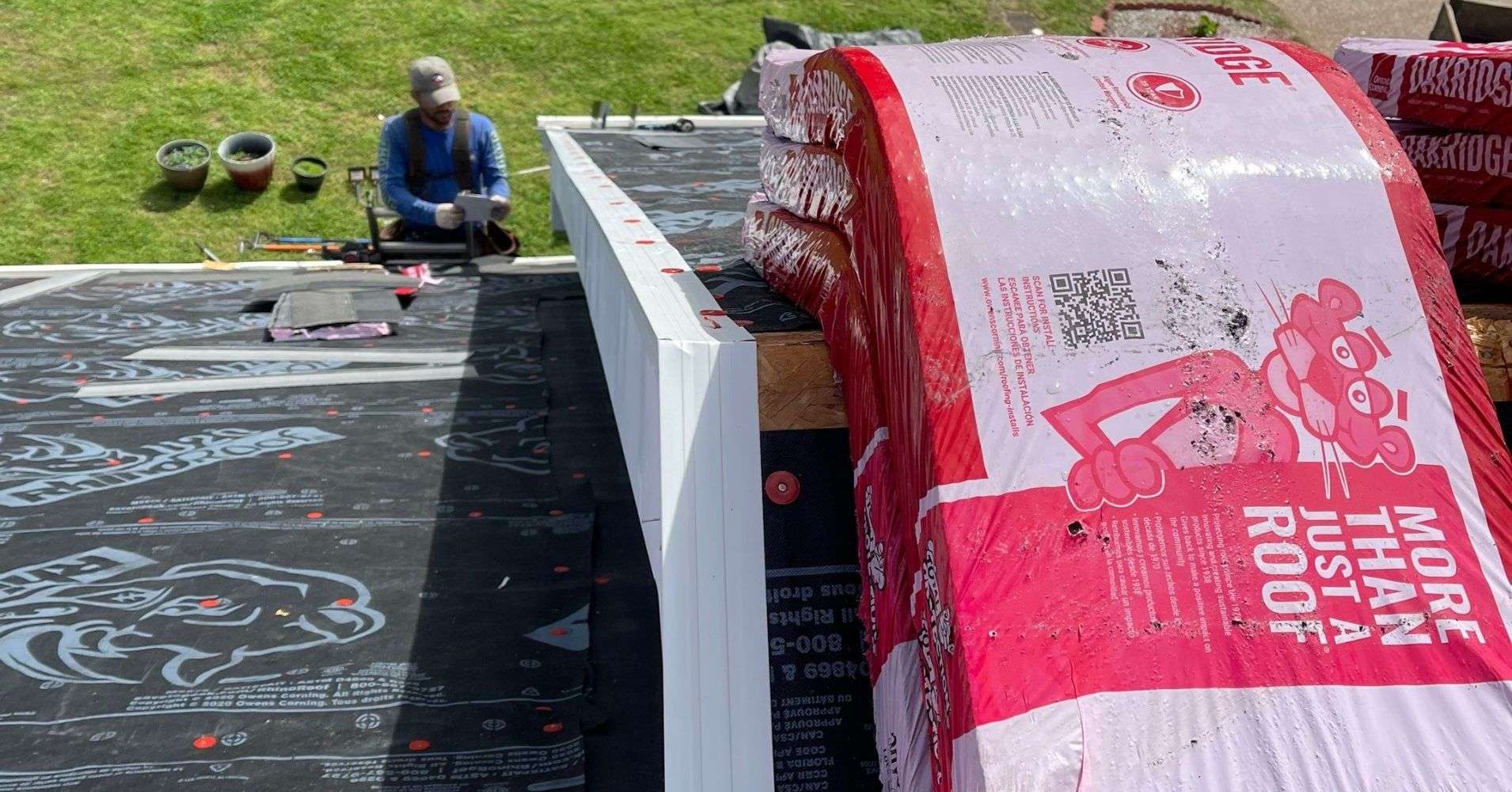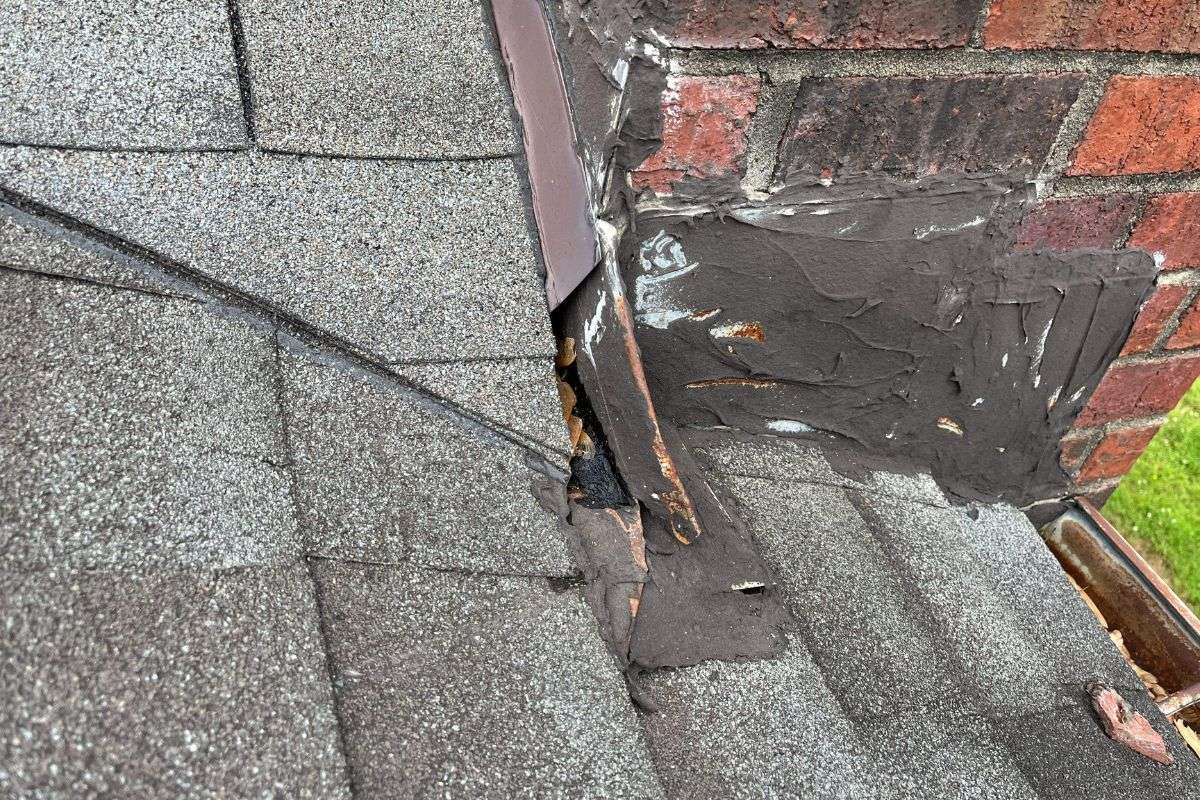HOMEOWNERS INSURANCE POLICIES & YOUR ROOF
It is important to understand what homeowners insurance policies cover and how to read an insurance scope. Policies are all very different and do not all cover the same things. Each insurance company has different policies and attitudes on how they deal with roof insurance claims. Some are very helpful and easy to work with and some have a default stance of deny, delay, and disappear.
Let’s explore insurance policies including coverage, exclusions, out-of-pocket costs, and options for additional coverage.
WHAT DOES A HOMEOWNERS INSURANCE POLICY COVER?
Before starting, check if your policy covers roof damage. Insurance typically covers extreme weather and storm-related issues like water damage, wind, hail, and falling trees. However, some policies might cover only a few of these risks.
Insurance companies typically cover roof replacements when you have multiple broken asphalt shingles, and simple roof repair won’t work. Sometimes, if the materials are too old or brittle to reuse, they might even pay for a full replacement. But remember, they won’t cover age, normal wear and tear, or improper installation.
Some policies contain a “dwelling only” provision. The insurance company will only cover damage to the actual house, not the stuff on it. Basically, if you damage your roof but the house underneath is fine, coverage will be unlikely.
If you’re uncertain about a policy, don’t hesitate to consult with an experienced roofing professional. They can review it and decide if your homeowners insurance covers the claim or not.
HOW MUCH IS YOUR insurance DEDUCTIBLE?
Once you confirm your homeowners insurance covers your roof, determine the coverage amount and deductible.
The deductible is crucial and similar to a fee paid when visiting a doctor. The homeowner pays this amount before the insurance company covers the cost of repairs or replacements. A higher deductible means more out-of-pocket cost to replace your roof.
Not paying your deductible is fraud and can lead to fines, loss of coverage, or prison. It’s also illegal for roofers to “pay the homeowner’s deductible,” so avoid making this request.
If financing this cost would be of assistance, a reputable roofing contractor can often make it possible. Those who are unable to finance the deductible should explore their options with their insurance provider.
Depreciation: RCV VS. ACV HOMEOWNERS INSURANCE POLICIES
Depreciation is key in how insurance companies calculate compensation for roof damage. Over time, your roof loses value due to wear, age, and weather. It’s important to understand how your homeowners insurance handles this, which leads us to discuss RCV vs ACV policies.
A Replacement Cost Value (RCV) policy makes sure you don’t lose home value when it’s time to replace your roof. This coverage comes with a bonus: you can get your money back after showing the insurer proof of the work done. It encourages homeowners to actually fix their roofs instead of pocketing the cash illegally. To get this benefit, you must complete the repair, or all the claims are void.
An ACV (Actual Cost Value) policy covers replacement costs minus the loss of value for your roof’s condition. These policies include “non-recoverable depreciation,” meaning you’ll pay both the deductible and depreciation costs yourself. This can be a big shock for homeowners not financially prepared, making roof replacement much harder.
Always check your policy to see if it’s an RCV policy or an ACV policy.
CODE UPGRADES AND SUPPLEMENTS
It’s also critical to understand if the insurance policy covers code upgrades and supplements. A code upgrade is a roofing feature that your local building department says your roof needs but is currently missing. Your roof might be missing key features like drip edge flashing, ice & water shields, taller step flashings, or a solid wood deck. Investigate these key details so you can ensure your home has up-to-date protection against potential damages.
Insurance companies often don’t offer full payment for upgrades immediately because most homeowners aren’t aware they could get more. Insurance companies often don’t offer full payment for upgrades immediately because most homeowners aren’t aware they could get more. That’s why having a roofer is crucial; they help maximize your reimbursement for upgrade costs.

Supplements refer to any additional items requested after the initial scope of work. These may include upgrades or items the adjuster left out to reduce costs, like ridge cap replacement, steep pitches or two-story drops. The supplement process is important for roofers as it allows them to earn more than from a regular sale.
DON’T LET INSURANCE AGENT PRESSURE YOU INTO USING THEIR PREFERRED ROOFING COMPANY.
As a homeowner, you may have experienced this scenario before. You’ve just had some damage done to your roof and now you need to file an insurance claim. After you get in touch with your insurance company, they’ll send an adjuster to check out the damage and give you a repair estimate. But then comes the unexpected request – the insurance agent suggests using their preferred roofing company for the repairs.
It’s not uncommon for insurance companies to have preferred vendors or contractors that they work with regularly. That being said, homeowners don’t have to choose any of these companies, especially when it comes to a roof replacement.
A lot of states have laws that stop insurance companies from making you use a certain contractor. So why would an insurance agent pressure you into using their preferred roofing company?
There are a few potential reasons for this. First off, it could just be a business relationship where the insurance company and the preferred vendor have a deal. They might get some financial perks or discounts by sending customers each other’s way. Secondly, partnering with one contractor may simplify and speed up the insurance agent’s job.
Whatever the reason, just remember that as a homeowner, you can pick your own contractor for repairs! This is especially crucial when dealing with something as vital as your home’s roof.
DON’T LET A POOR ROOFER MESS UP YOUR INSURANCE

Choosing the wrong roofer can really throw a wrench into your insurance policy. Not only can it lead to claim denial, but it also puts your home at risk long term. Here are a few things to watch out for:
- Bad Installation: If your original roofer isn’t up to snuff, they might botch the job. This can lead to leaks or structural problems that your insurance won’t cover since they see it as shoddy work. Make sure you choose a licensed, bonded, and well reviewed roofer.
- Cheap Materials: Using low-quality materials might save a buck, but it could void your insurance if they don’t hold up. Always check that your roofer uses top-notch materials backed by good warranties.
- Lack of Documentation: Insurers need detailed records of the repairs. If your roofer isn’t good at documenting their work, you might find yourself without the proof needed for a claim. Keep track of photos, receipts, and detailed job descriptions.
- Ignoring Codes: Roofers must follow building codes. If they don’t, it could lead to violations that not only cause fines but also void your insurance. Work with pros who know and follow local rules.
- Voided Warranties: Most materials come with warranties, but if installed wrong, they’re meaningless. This is true for your insurance claims as well. Insurance adjusters are always looking for a reason to deny your claim. Choose certified roofers to keep your warranties and roof intact.
WHY YOUR INSURANCE MIGHT GET VOIDED
If your insurance is voided, your coverage is gone, and any claims will be denied. Here’s why that might happen:
- False Info: If you misrepresent your roof’s condition, hiding past claims, or lie on the application then you’re risking your policy.
- Not Paying Premiums: Missing payments can void your policy. Make sure you’re up-to-date with your payments to keep your coverage active.
- Breaking Policy Terms: Every policy has rules—don’t break them. Not maintaining your property or failing to inform your insurer of changes can lead to a voided policy. Keep up with your policy’s terms to avoid surprises.
By staying informed and proactive, you can keep your home and insurance safe from the risks of poor roofing choices.
FIND A REPUTABLE ROOFER TO HELP YOU THROUGH THIS PROCESS
Navigating homeowners’ insurance coverage for roof replacement can be daunting and tedious. But getting a reliable roofer on board means you’ll get the most out of your reimbursement and enjoy great service from start to finish.
When hiring a roofer, it’s vital to do your homework. Find someone with a clean record in handling insurance claims and who can provide necessary paperwork. Ensure they have the right licenses, certifications, and liability insurance for peace of mind. By choosing the right roofing company, you’ll be confident your insurance claims are in good hands.
Let Roof MD become your roof-claims advocate! Our experienced crew provides exceptional guidance and assistance to help you get the roof replacement you deserve. Schedule a FREE consultation today and let us help file a claim and protect your home in the long term.
